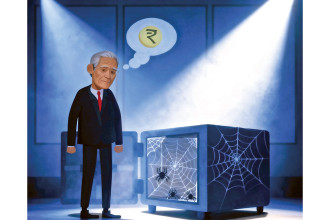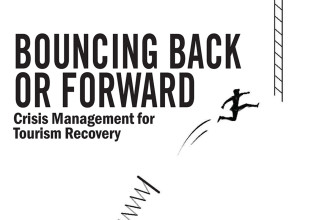
- Perspective from former leaders
The Nepali private sector boasts a formidable trio shaping its economic landscape: Federation of Nepalese Chambers of Commerce and Industry (FNCCI), Confederation of Nepalese Industries (CNI) and Nepal Chamber of Commerce (NCC). Each organisation brings a unique historical perspective and area of focus, fostering a robust ecosystem for businesses of all sizes.
NCC holds the distinction of being the first chamber of commerce in Nepal, dating back to 1952. This pioneering role placed them at the forefront of shaping Nepal’s business environment, particularly following the country’s democratic shift in 1990. NCC’s strength lies in its extensive network. Over the years, they have built a strong base of members, fostering a sense of community and facilitating collaboration among entrepreneurs. They have consistently served as a powerful voice for businesses, lobbying for government policies that encourage economic growth and create a favourable climate for investment. Their historical significance and vast membership base solidify their position as a crucial player within the Nepali business landscape.
FNCCI stands as a veteran of the group, established in 1965, but receiving official status only three years later. It emerged amidst a growing need for a unified voice representing the interests of Nepal’s burgeoning business community. Over time, FNCCI evolved into a national and international umbrella organisation, representing a diverse range of businesses, from local enterprises to multinational corporations operating in Nepal.
CNI, a more recent addition to the team, takes a specialised approach, focusing its efforts on the growth and development of large-scale and medium-scale manufacturing and service industries. Their membership is a prestigious who’s who of Nepali industry, boasting major corporations, blue-chip companies and joint ventures. This influential membership base allows them to effectively advocate for the specific needs of these key sectors, ensuring their voices are heard by policymakers. CNI’s focus on industrial development complements the broader advocacy efforts of FNCCI and NCC, creating a well-rounded approach to supporting Nepal’s diverse business landscape.
Together, FNCCI, CNI and NCC serve as powerful advocates for Nepal’s businesses, fostering collaboration, shaping economic policy, and propelling the country’s economic growth on the national and international stage.
All three organisations play a crucial role as liaisons between the government and the private sector. Their industry expertise allows them to provide valuable insights and recommendations on policy formulation. This collaborative approach ensures that policies are not only practical but also conducive to fostering a thriving business environment. By facilitating open communication and advocating for industry-specific needs, they bridge the gap between policymakers and those directly impacted by the regulations.
FNCCI, CNI and NCC work in tandem to create a robust ecosystem that supports businesses across various sectors. Their combined efforts ensure that the voices of Nepali businesses are heard by the government, influence policy decisions that promote economic growth, and ultimately contribute to a more prosperous Nepal.
However, it is also true that in recent times, these organisations have been mired in controversy, games of political interest for personal gain, vested interest to the point that their governing body elections have huge sums of many changing hands for votes, syndication and cartels and power play.
To find out how these organisations have evolved since their inception, their role in the past and their relevance now, in this edition of Business 360 we spoke to three individuals who have been the presidents of these organisations in the past to get a unique perspective on the topic. They are Ravi Bhakta Shrestha, Chairman, I J Group, Past President of FNCCI; Dr Rajesh Kazi Shrestha, Chairman and Managing Director, Arksh Group, Past President of NCC; and Hari Bhakta Sharma, Executive Director, Deurali-Janta Pharmaceuticals, Past President of CNI.
What is the role of organisations like FNCCI, CNI and NCC? Has the situation changed between when it was established, your tenure and present day status?
Ravi Bhakta Shrestha: In the beginning, a collection of businesspeople decided to form a collective, so that they could provide suggestions to the government in matters related to business. As time went on and more chambers of commerce started getting established in the districts outside of the valley, an idea came up to unite a federation of all these chambers. The role of such organisations I would have to say is to scrutinise the government collectively, sometimes by visiting as a delegation and sometimes by submitting suggestions and demands. FNCCI’s role is to improve the private sector’s prospects and growth, to discuss and give suggestions for the economic development of the country. It also seeks to bring together the business community’s voices to address the issues of the private sector to the government of Nepal. It strives to make effective and significant contributions to the development of the open market economy while recognising the changes taking place in the global arena. Finally the FNCCI was created to foster cooperation with related national and foreign organisations.
Rajesh Kazi Shrestha: Any organisation is established to tackle a problem. In 1952, some businesses got together to advise the government on various issues and to put forward the issues they were facing. It was later christened Nepal Chamber of Commerce. There have been drastic changes to the organisation even comparing my first and later terms. The way the organisation itself functions, the government’s response to the organisation, it has all changed. NCC was always a part of government delegations and committees in the past. Even the perception of businesses of the organisations has changed. The respect that the organisation used to receive in the past has been spread thin with the number of organisations increasing as well. The government now has to listen to a multitude of organisations each with their own specific focus. That was not the case in the past.
Hari Bhakta Sharma: When CNI was established, our goal was to create an institution to promote investments in Nepal’s industrial sector through policy improvement and process simplifications. Throughout the history, CNI had been advocating about what needs to improve in Nepal strategically, what would be the government’s and the private sectors role, how industries would create employment in the country, what kind of governance is needed for facilitating investment in manufacturing and services industries, and finally what other countries have done to attract investment in production sector. These were some of the pertinent policy interventions CNI had been ‘talking for change’. For a very long time our country, by my estimation for more than hundred and fifty years, had been facilitating import of goods and services to collect taxes on those imports. This is how even today the government’s revenue is managed.
The policy to facilitate innovation within the country, creating enterprises, investing and growing industrial sectors having higher potential has rarely been implemented. There were few instances in the history, a bit during King Mahendra’s initial tenure post 2022 BS and also during the first few years after the restoration of Multiparty Democracy post 2048 BS (when Panchayat system was abolished) when serious policy changes and policy intervention were implemented. Other than those times, in the history of Nepal, not much focus has been given to improve the industrial investment, innovation, and creation of jobs in Nepal. So CNI is an institution that represents the cause of industrialization and entrepreneurs who seek to invest in manufacturing and services industries with the ability to bring innovation and competitiveness in Nepal.
What is the incentive for businesses to join such organisations?
Ravi Bhakta Shrestha: FNCCI fosters close collaboration between the government and private sector. As a member, you gain the opportunity to participate in public-private partnership initiatives. Also, being affiliated with a prestigious organisation like FNCCI adds credibility and recognition to your business. The FNCCI affiliation signifies their commitment to ethical business practices and adherence to industry standards. FNCCI membership connects businesses to a vast network of businesses across Nepal. This opens doors to potential partnerships, fosters collaboration, and creates a platform to voice your concerns. FNCCI actively lobbies the government on behalf of its members, ensuring a business has a seat at the table when policies impacting your industry are being formulated. Any suggestions and problems faced by the private sector can be put through by the FNCCI to the government of Nepal. This is a more effective way to through the private sectors issues to the government.
Rajesh Kazi Shrestha: There are a few types of members that join. Some join for the benefit that unity brings. In the past, businesses needed the chamber’s recommendation to renew their licences. Right now, many join for the chamber’s information network as well. The chamber receives information from both international and national sources, from the government and private sector as well. There are also many that join for the security that the chamber represents, knowing that if something goes awry the chamber will have their back. There have also been cases where a party that is running for an election will bring in a surplus of members because they will then receive those votes. These members generally do not have an idea what the chamber is about.
Hari Bhakta Sharma: The voices of individual industry are difficult to be represented in the present day Nepal as an industry lobbying by itself is ineffective. This is the reality in the present day world. By participating in the CNI platform, the government is willing and also forced to address the issues of industries. CNI had been actively lobbying and advocating with the government agencies to bring changes in this sector and implement policies to support industries in Nepal. Obviously we cannot deny that many of our suggestions were not implemented by the government, even though there is general acceptance of these policy changes. However, that is not due to any lack of efforts on CNI’s part. Despite CNI’s efforts, many government bodies do not realise the importance of implementing such suggestions, that would have benefited the country’s economy and given many Nepali citizens good employment opportunities. The suggestions CNI submits to government agencies are not to benefit only one sector, but to improve the overall economy and employment generation in Nepal. In a way, we have worked hard to develop CNI as a ‘Think Tank’ for such policy and procedural changes, which are imperative for industrial growth.
Having said that, CNI had struggled considerably during the initial phase of its establishment. Our starting years were marked with immense political instability especially during the Maoist insurgency, which was followed by a lengthy political transition. Nonetheless CNI’s dedicated hard work was one of the reasons, in improving the country’s economy, reduce damage to the business sector and most importantly the investment is industrial enterprises during the most difficult times. It’s only the people whose risk taking entrepreneurial zeal and ability to invest in most essential business enterprises with focus on innovation, science and technology our country can prosper. We have been providing such suggestions to the government which helps in improving the macro and micro economy of the country, which is something CNI has been continuing to the present day.

Ravi Bhakta Shrestha
Chairman and Managing Director, I.J. Group
Former President, FNCCI
How effective are the organisations in lobbying for necessary changes from the government’s side? How would you assess the current level of advocacy that your respective organisations are doing on behalf of businesses with the government?
Ravi Bhakta Shrestha: Instead of always going to the prime minister, ministers and leaders, all the entrepreneurs should gather and invite them to the federation and explain our points. We need to take the initiative to show the collective commitment of business leaders for economic development. I am very proud that in the history of the federation, I have invited leaders of various political parties, including the then prime minister to the federation to explain our situation and problems. I remember very well, at that time, we took the initiative to show the collective commitment of political party leaders for economic development. I had organised a meeting with all the political parties for an agreement on the agenda that the economic priorities must remain the same, regardless of who the ruling party is. We had received the signatures of all the present parties to abide with this vision. This practice has not been continued since. While the government does listen to the suggestions made by the federation it is very difficult to expect implementation with the political instability and the ruling parties and their priorities changing all the time.
Rajesh Kazi Shrestha: What I feel is that the government itself is in confusion. We have however done the best possible amount of lobbying. Neither the government nor the private organisations can ever do a perfect job, but the government generally takes into account around 20-30% of our suggestions, at most reaching 40%. I often ended up questioning our presence while drafting the budget if our suggestions are so rarely taken. We have had to conduct some protests as well. It is important to keep hammering the government.
There has also been a drastic increase in personal interest being the cause for lobbying for certain changes. Every faction and sometimes the organisation itself seems to be moving based on a personal agenda. This has resulted in the government disregarding many of the suggestions put forward as well.
The things we focus on are related to industries, businesses, tourism and the economy in general. The government’s priority is on collecting taxes and using it for various purposes. While our request is to reduce taxes and create an environment where it is easier for everybody to conduct business. If the number of businesses and people working increases then the taxes levied in total increases as well. The high taxes have caused most business people to leave and if there are no businesses what utility could an organisation hold? It’s almost as if businesses and organisations need to pack up and give up their keys to the government.
Hari Bhakta Sharma: Most of the governments accept CNI suggestions, but the problem in Nepal lies in its implementation. The government, whether it be in the budget or otherwise, promises a lot of things every year, but very rarely are those measures implemented for the benefit of industries and people involved in these sectors. We have been lobbying for the consistency of policy across governments and across various departments. The predictability of policy and rule of law is necessary for increasing investments, as otherwise every new government will seek to bring its own populist policies that are going to be implemented for a very short period of time. This is why our economy, which is supposed to have been getting stronger, has been facing consistent weaknesses to produce goods and create jobs. Today very sadly our economy is entirely dependent on imports. Whereas we need enterprises, to produce goods and services, which can compete both within the region and with the global markets. We cannot just look at how much we have improved over the course of 20-30 years. We have to look at how other countries and other economies performed and grew during the same time period within our region and beyond.
Another immense challenge we have observed with successive governments is that there is very much focus on distribution of various social benefits to different sections of the population without any sustainable production and income within the country. That is not going to generate economic value within our system, but it is forcing the nation to distribute such benefits by heavily borrowing funds (either from local or international markets). That results in expenditure being far higher than the income, which we are now facing during successive years. This is not going to be sustainable and highly detrimental to our economy in near future as we might fall into a deep debt trap.
What is the benefit for someone in the president’s seat of such organisations?
Ravi Bhakta Shrestha: One of the main reasons someone strives to be a president is for prestige. Maybe some have an additional agenda of trying to get some personal advantages from the post. FNCCI has a network throughout the country and has millions of members. FNCCI is a huge organisation and its president is the leader of the private sector and business communities, with the organisation running parallel to the government.
Rajesh Kazi Shrestha: When I started, we only had elections for the first few years. Recently these elections have also promoted groupism within the organisation. This has resulted in many decisions not being taken because regardless of a decision’s quality, factions tend to try to stop each other’s decisions being taken. To try and curb such a mentality and to protect the greatest strength of the organisation, being unity, we decided to stop holding elections and moved towards selecting the leadership during my tenure. There had also been a period of time where elections were held every year to improve numbers at the annual general meetings, but since that was very expensive, decisions were made to change that to two years.
Hari Bhakta Sharma: Firstly it is the recognition or an achievement of the individual leader and institution. As a matter of fact the presidents of industry organisations are highly respected positions globally. Industry leaders need to represent their institution with local government and represent the country with international institutions and governments. It offers an exceptional exposure to the leadership, while they lead the organisation and work with governments as well as international business organisations. CNI‘s constitution is very robust and is led by successful entrepreneurs. Hence CNI does not allow the holding of the President’s position multiple times and hence there is no anomaly of fighting for the leadership within the organisation. This has resulted in effective leadership and also opportunity for new members to reach that position, by working for the institutional cause.
However, there is an increasing trend in various other institutions, to take opportunities for their personal benefits, by the senior business leaders while they head the business organisations. This might be the reason why various incumbent leaders are spending large amounts of time and money to hold the position and get elected to such posts. An external perspective on the elections of other organisations seems to be getting too expensive and too demanding. In the end, if the country’s governance improves then the functioning of the organisations in the private sector will also improve. The situation with the elections seems to be the reflection of the current governance and social system prevailing in the country.
Any advice you would like to offer to the current presidency of these organisations?
Ravi Bhakta Shrestha: Considering the nation and nationality as paramount, the sole umbrella organisation of Nepali businesspeople, FNCCI, needs to move forward unitedly for the development of the economy as a whole. I think that our problems can be solved only if all the businesspeople can move forward unitedly in the situation that the country is going through now. Thus, it is the current leadership’s task to not only unite FNCCI members but all the other organisations as well. Thus, we can present a united front to the government and make sure our suggestions and advice are being followed seriously.
At present, the government and political parties are not so serious and sensitive as required to the economic development of the country, the unity between us can be an important force to make the government and political parties more responsible. I am of the opinion that we must pressure the state to create an environment to fulfil our demands and suggestions by attracting the government and parties towards the country’s economic agenda through our strong unity. I am of the opinion that we should not back down.
In my opinion, there is still no proper behaviour and thought for the development of the economic sector in the political sector. The fact that there is still no proper representation of this sector in the work of formulating the economic policy of the state also makes us realise the responsibility that we have to bear. In order to fulfil such responsibility, the new leadership must be strong, capable and honest. In addition to that, the ability to take everyone along should also be seen in the leadership. The leader alone cannot do everything, for this, all members should be able to work for the rights and interests of the organisation with a common objective. The president of FNCCI should have good coordination and regular discussions among office bearers.
Rajesh Kazi Shrestha: While we often end up speaking to the current leadership, our suggestions invariably remains to unite all the sectors, take all their suggestions, and fearlessly present these suggestions to the government, and if necessary, protest so that the government may meet these demands. It is not as if no one is listening. Some governments heed these suggestions but are just not capable of implementing them. There are too many elements to consider at any given point.
Hari Bhakta Sharma: We should now focus on implementing a participatory leadership approach. By participatory I mean that every member should be able to share their views, those views should be taken to the implementation stage, and members should always be engaged within the organisation. The more such measures implemented, the more dignified the members would be and also increase the organisation’s value. If an enterprise was able to contribute to change, and in return they receive assistance to make their business better, it would fulfil the primary role of the organisation. Membership driven where members are able to contribute not just to their own personal growth but for the growth of the nation’s economy, that is the sort of organisation we are trying to build at CNI. I hope the current and upcoming leaderships will work to uphold these values.

These organisations were created because businesses needed to unite. If businesses are having a tough time and organisations cannot help then what is the use of them paying the membership fees? It is also not a fair outlook to say that everything was great during my tenure and everything is bad now. This is just how it will continue to function, with its ups and downs. But there is always a difference between an organisation being forced to exist and existing willingly.
Rajesh Kazi Shrestha
Chairman & Managing Director, Arksh Group
Former President, NCC
Are there any decisions made during your term you would reconsider?
Ravi Bhakta Shrestha: There are no such decisions. Thankfully most decisions worked out well. I do regret not being able to unite all the organisations to present a united front. CNI was established during my tenure. It had brought divisions among the business sectors. I had tried my best to prevent the establishment of another business organisation as it would weaken the unity of the private sector. However, today I am happy that the three organisations are working together under the leadership of FNCCI, if and when necessary, to address the issues of the private sector
Rajesh Kazi Shrestha: A decision I think we were better off not doing does not really exist. All the measures we took were made with careful consideration and good intentions. Of course, there is some guilt of not being able to help each and every business. Maybe there is something more we could have done, but whether that is because of something lacking in us or the interference of others is in the past now.
Hari Bhakta Sharma: I don’t think that there is much I have to regret from my tenure. If something bad had happened, I am sure the media would have outlined it. During my tenure, I along with my entire team strived to make the organisation better prepared to serve the members than when we started initially. We worked very closely with policy makers and stakeholders.
During the initial time the government was hesitant to recognize CNI as an institution. But with our continued efforts, we were able to create the results by bringing the economy and industry to the centre stage, by advocating for economic policy suggestions, for the benefit of the country’s economy. CNI became a prominent Chamber for the advocacy and the true representation of private sector industrial enterprises, for the national economic policy reforms, for which CNI was established.
Perhaps what we were unable to do was related to bringing ‘economic freedom’ to the centre stage while a new constitution was written. The provisions in the present constitution are not much favourable to promote private business enterprises and private investments as there are many impediments within the constitution. For investment to grow in our country and jobs to be created we need to promote investment in enterprises and also provide economic freedom so that more companies invest in innovation. But due to the shortcomings in our constitution the economy is now showing the signs that the constitutional measures were not appropriate in promoting industrial investments as our economy is suffering through constant poor growth and reduced employment. Today, very sadly, we produce less goods and services and create very few jobs within the local economy which is the lowest in our region not comparable to any neighbouring countries. The economy is not going down solely because of the Covid-19 pandemic or the earthquake. It is a structural problem that our economy is facing. Any young citizen of the country does not see a future in Nepal. They face multiple challenges to start a business and do not get dignified treatment from the government. Moreover there is no investment protection, and hence people end up doing short term businesses for quick benefits. Long term industrial investments are becoming highly risky and hence people are not taking such risk as dignity and protection does not exist for people who create jobs through industrial enterprise. Not having such provisions in Nepal’s new constitution is something we could have done better.
As a country Nepal is unable to give its citizens, especially the youth, hope that they could do business in Nepal, live a decent life with good earnings. A significant amount of this stems from the outdated rules and laws that we have at present that should have been replaced quite a long ago. Now is the time that we improve them with a less convoluted system of law as our government agencies are focusing more on too much regulation and too much complicated legal systems. History has already shown us that countries with minimal but effective laws have developed and provided better life than countries which brought too much control and over-regulated many aspects of business. Nepal needs to abolish present day too many difficult regulations.
What do you consider your most enduring achievement in your role as president of your respective organisation?
Ravi Bhakta Shrestha: I had the opportunity to serve for a decade in various posts of the FNCCI. Before becoming the President, I served as Executive Committee Member, Committee Chair, and Vice-President. Since many trusted me in various positions of this federation and elevated me to the position of the president, I gained the confidence to write something about our discipline and ethics. When I was the president of the federation, I realised the responsibility and duty of industrialists is to eliminate distortions in the country’s industry and reduce corruption, and to bring positivity in the way industrialists are viewed in the society. Under my tenure as President of FNCCI, the “Discipline Committee” was formed alongside the Business Code of Conduct. A lot of support was received for that decision. After me, the constitution of the federation was amended and a Disciplinary Committee was formed. The Code of Professional Conduct was created by the Disciplinary Committee and implemented. The code of conduct which has been adopted and implemented by the private sector today. Since then, as the chairman of the disciplinary committee of the federation, I was engaged in the campaign to make the private sector more disciplined, responsible and transparent. Until a few years ago, I had been appointed as the Chairperson of the Disciplinary Committee. The FNCCI has not formed a Disciplinary Committee in the last few years, despite being mandated by the constitution of the FNCCI. I am grateful for the support received from all my friends in the private sector in my campaign.
Rajesh Kazi Shrestha: Not when I was the president but when I was the vice president, we had to lobby to amend many laws related to VAT. All the districts had cooperated in that venture as well.
Hari Bhakta Sharma: I think it’s not just one measure or decision that is the best. Since the inception of CNI, we have worked for the development of businesses in manufacturing and services industries, promote innovation, and create good quality employment. We started organising the Infrastructure Summit to bring awareness within the society and within the government to improve overall infrastructure for economic, industrial and social development of the country. If there is any suggestion we could give to the government regarding proper policy suggestions during each budget, we have given it time and again in each consecutive year. These suggestions have been taken by the Nepali government as well. The fact that we have developed the capacity of the institution as an Economic Think Tank. This is the greatest contribution we have made to make CNI a capable institution, with focused areas of its operation and representation.
-1719735752.jpg)
Hari Bhakta Sharma
Founder and Executive Director, Deurali-Janata Pharmaceuticals
Former President, CNI
What do you see in store for the future of such organisations?
Ravi Bhakta Shrestha: I am confident that the future leadership will reflect on the work done so far and contribute more to the work of enhancing the reputation of the industrial and commercial sector. In this situation, rather than the president alone, all the office bearers and members should fulfil their responsibilities and play the role of advancing the private sector. The post of president is a very prestigious post. It seems that the president who leads the entire private sector should pay special attention only to matters of national importance related to the economy and the concerns of the private sector. Other office bearers should proceed with a sense of duty to fulfil the responsibilities of their respective work areas. The federation under the new leadership of the new era should be able to make the internal management and secretariat agile, sound and professional along with the expansion of physical infrastructure, play key roles for the private sectors and economic development of the country, hand in hand with the government of Nepal.
Rajesh Kazi Shrestha: These organisations were created because businesses needed to unite. If businesses are having a tough time and organisations cannot help then what is the use of them paying the membership fees? It is also not a fair outlook to say that everything was great during my tenure and everything is bad now. This is just how it will continue to function, with its ups and downs. But there is always a difference between an organisation being forced to exist and existing willingly.
Migration is a huge problem. People are leaving to work abroad, students are going to study and now even the industrialists and business people are preparing to leave the country as they cannot find ways to work in Nepal. What is the point of the government regretting their decisions after mostly everybody has left. All in all, working in Nepal is going to continue being extremely difficult, even for organisations like NCC.
Hari Bhakta Sharma: Organisations like CNI are necessary in any country. An organisation to represent the cause of industries of Nepal is very much necessary to improve the industrial ecosystem and increase investments. If the collective strength of CNI becomes weak, then the country itself will suffer. It is in the best interest of the country, governments, and the many political parties that CNI continuously thrives. Because without thriving industries and without good quality local employment the country itself will end up bankrupt and will not be able to provide good quality life to its citizens. Hence I have no doubts regarding the CNI’s future. If CNI ever ends up weakening, then I believe that all industries of Nepal have weakened and the country’s economy will suffer.






